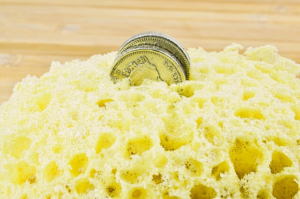Eco-Friendly Solutions: Mastering Residential Yard Waste Removal and Recycling
Yard waste removal and recycling are crucial practices for environmental sustainability, transforming grass clippings, leaves, branches, and garden debris into valuable compost or mulch, thus reducing the need for synthetic fertilizers and cutt…….

Yard waste removal and recycling are crucial practices for environmental sustainability, transforming grass clippings, leaves, branches, and garden debris into valuable compost or mulch, thus reducing the need for synthetic fertilizers and cutting down on landfill-bound waste. These services are offered by both municipal and private entities, with specific guidelines for preparation and disposal that vary by location. By adhering to these regulations, homeowners can effectively manage their yard waste responsibly. Advanced composting techniques like aerated static pile (ASP) composting accelerate the decomposition process, producing high-quality compost for use in landscaping and agriculture. Additionally, some regions have implemented anaerobic digestion systems to convert yard waste into biogas and digestate, offering a renewable energy source and sustainable fertilizer alternatives. Yard Waste Removal and Recycling initiatives are key components of sustainability efforts, reflecting the growing demand for eco-friendly waste management solutions that contribute to climate change mitigation and the promotion of circular economy principles. Homeowners are encouraged to utilize these services to minimize their ecological footprint and support local ecosystems.
Effective yard waste removal and recycling plays a pivotal role in maintaining ecological balance and community cleanliness. This article delves into the essential practices of managing yard waste, from comprehending its composition and environmental significance to navigating local regulations for collection services. We’ll explore innovative techniques and facilities that enhance yard waste recycling, ensuring homeowners can maintain their landscapes responsibly. Discover how yard waste removal and recycling processes contribute positively to the environment and how you can participate in these eco-friendly initiatives.
- Understanding Yard Waste Composition and Its Environmental Impact
- Navigating Local Regulations and Scheduling for Residential Yard Waste Removal
- Innovative Techniques and Facilities in Yard Waste Recycling
Understanding Yard Waste Composition and Its Environmental Impact

Yard waste, encompassing a variety of organic materials such as grass clippings, leaves, branches, and garden waste, is an essential component of overall household waste. Proper management and disposal of this waste are crucial for maintaining environmental health. Composting these materials can significantly reduce their environmental footprint by returning valuable nutrients to the soil and reducing the need for synthetic fertilizers. Yard Waste Removal services play a pivotal role in facilitating this process. They ensure that organic matter is collected and either composted on-site if residents have access to home composting systems or taken to specialized facilities for decomposition. This not only cleans up residential spaces but also contributes to the creation of rich, humus-laden soil amendments. Additionally, Yard Waste Recycling helps in mitigating methane emissions that would otherwise occur if these materials were disposed of in landfills where they decompose anaerobically. By promoting Yard Waste Removal and Recycling, communities can contribute to sustainability practices, reduce greenhouse gas emissions, and support the health of local ecosystems. It’s a cycle of responsible waste management that benefits both the environment and the community at large. Residents are encouraged to participate in these programs to ensure the positive environmental impact continues.
Navigating Local Regulations and Scheduling for Residential Yard Waste Removal

Residents who undertake yard maintenance tasks are often left with substantial amounts of yard waste, including branches, leaves, grass clippings, and garden debris. Navigating local regulations for yard waste removal is a critical step for homeowners to ensure compliance and environmentally friendly disposal. Each municipality may have specific guidelines on how, when, and what type of yard waste can be disposed of. Homeowners should consult their local waste management service to understand the acceptable materials and any restrictions that apply. This often includes information on whether the waste must be bagged, bundled, or placed in compostable containers. Additionally, some regions offer specialized recycling programs for yard waste, which can convert organic materials into nutrient-rich compost or mulch, thereby supporting local sustainability efforts.
Scheduling yard waste removal is an essential aspect of maintaining a clean and orderly property. Many municipal services offer regular pickups for yard waste, sometimes on different schedules than general trash collection. Residential customers can typically arrange for these services through their city or county’s public works department. It is advisable to check the local calendar for yard waste collection dates, as they may vary by neighborhood or seasonal demands. For those who prefer more control over their waste removal timeline, private yard waste removal companies often provide on-demand services. These services can be particularly convenient for large clean-up projects or for managing waste that does not fit into the municipal pickup schedule. Homeowners should plan ahead and make arrangements with their chosen service provider to ensure timely disposal of their yard waste.
Innovative Techniques and Facilities in Yard Waste Recycling

Residential yard waste removal services have evolved significantly, incorporating innovative techniques and facilities that enhance the recycling process. These advancements are pivotal in transforming organic waste from gardens, parks, and other green spaces into valuable resources. Modern composting facilities employ aerated static pile (ASP) composting, which optimizes the decomposition of yard waste by controlling temperature and moisture levels. This method not only speeds up the process but also ensures a high-quality end product that can be used for landscaping or agricultural purposes. Furthermore, many municipalities have implemented yard waste diversion programs, which encourage residents to participate in the recycling efforts. These programs often include curbside collection services, where organic matter is collected and taken to processing facilities to be composted or converted into mulch and other beneficial materials. The adoption of these sustainable practices significantly reduces landfill usage and supports the principles of a circular economy.
In addition to traditional composting methods, some regions have introduced advanced anaerobic digestion systems for yard waste recycling. These systems convert organic matter into biogas and digestate, providing a renewable energy source and a nutrient-rich soil amendment. The biogas can be used to generate electricity or heat, further contributing to the sustainability of these recycling programs. The digestate resulting from this process is an excellent substitute for chemical fertilizers, promoting healthy plant growth and soil quality enhancement. The integration of technology in yard waste removal and recycling not only supports environmental conservation but also offers communities a sustainable approach to managing their organic waste. As a result, residential yard waste removal services are becoming increasingly sophisticated, reflecting the growing need for eco-friendly waste management solutions.
Effective yard waste removal and recycling plays a pivotal role in maintaining ecological balance and promoting sustainable communities. This article has illuminated the significance of understanding the composition of yard waste, its environmental footprint, and the importance of adhering to local regulations for efficient collection. By exploring innovative techniques and facilities dedicated to yard waste recycling, residents can contribute to a greener environment. Homeowners are encouraged to utilize their local yard waste removal services, which not only facilitate cleaner yards but also support resource recovery and soil health. Embracing these practices will lead to a more sustainable future for our planet.







